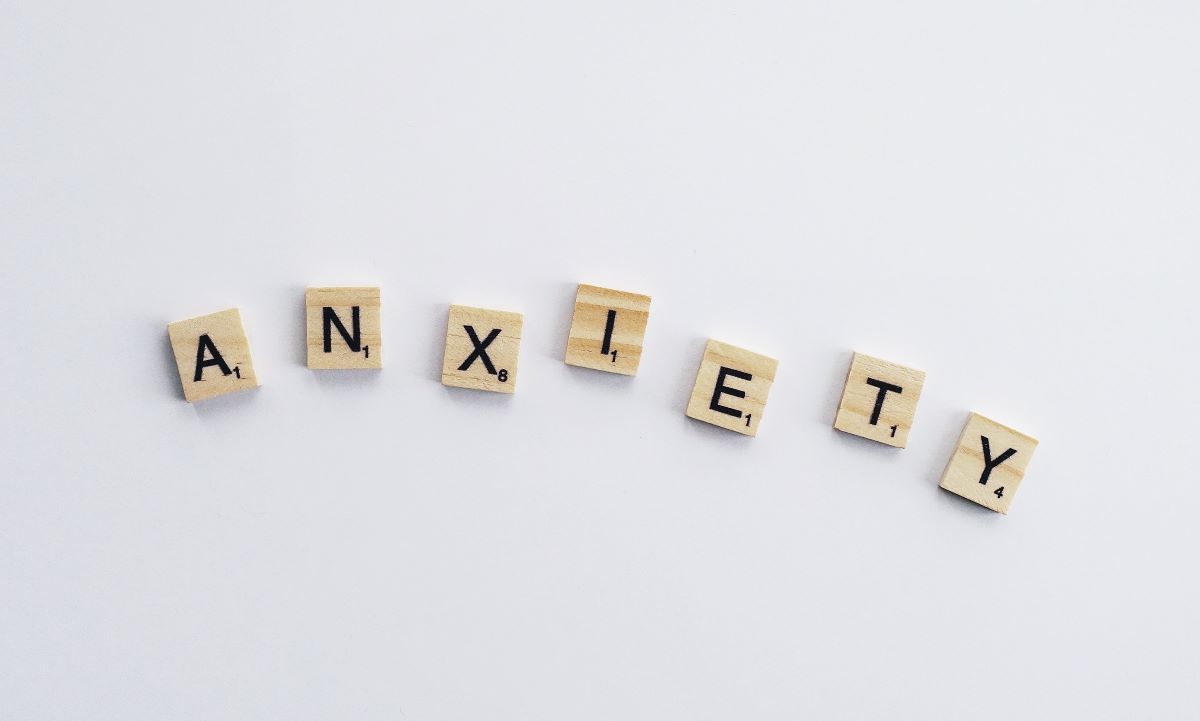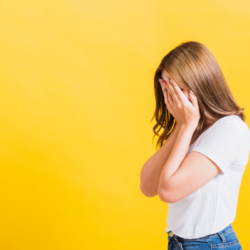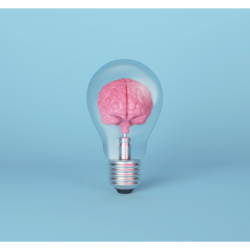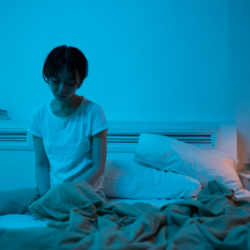Although there are many symptoms of anxiety, chances are you’ve already experienced them. Breathlessness, difficulty falling asleep and a tight throat are just some of the symptoms of anxiety. So what are the solutions available to alleviate them?
What is anxiety?
Anxiety is a strong feeling of insecurity. Like fear or worry, its intensity can vary greatly. In fact, we experience anxiety when we anticipate a future situation. What’s more, this distress is associated with muscular tension and avoidance behaviour.
The most common anxiety disorders
It’s not uncommon to experience a drop in morale as a result of certain sad events in our lives. But it’s important to know how to differentiate between the various types of anxiety.
Social anxiety
In other words, the person experiences strong feelings of anxiety or fear in social situations. The same applies to public speaking, for example. Not to be confused with shyness. Social anxiety is characterised mainly by performance situations in which we may feel observed, embarrassed, humiliated, rejected or judged by our fellow human beings.
Panic disorder
Panic disorder occurs when a person suddenly feels an intense surge of fear. What’s more, panic disorder can occur more than once.
Phobias
A phobia occurs when an animal, an insect, a certain situation or even an object can trigger extreme anxiety.
Generalised anxiety disorder
The subject experiences “too much” anxiety about the importance of the situation in question. What’s more, this anxiety, which is difficult to control, can affect all areas of the person’s life.
How can an anxiety attack be relieved naturally?
When you find yourself in the middle of an anxiety attack, it’s essential to have coping mechanisms at your disposal to regain your composure. Here are several effective ways of naturally relieving anxiety attacks:
Practise deep breathing techniques
A powerful technique for relieving anxiety is deep breathing. By concentrating on your breathing, you can slow your heart rate and induce relaxation. Try the following deep breathing exercise:
- Sit or lie down in a comfortable position.
- Close your eyes and inhale deeply through your nose, counting to four.
- Hold your breath for four seconds.
- Exhale slowly through your mouth, counting to four.
- Repeat this cycle for several minutes, concentrating solely on your breathing.
Exercise regularly
Physical exercise is not only good for your physical health, but also for your mental well-being. Regular physical activity releases endorphins, known as the “happy hormones”. These hormones can help reduce anxiety and improve your mood. Consider incorporating activities such as brisk walking, yoga or swimming into your routine.
Practise mindfulness meditation
Mindfulness meditation is the practice of paying attention to the present moment without judgement. By cultivating mindfulness, you can create a mental state conducive to relaxation and reduce anxiety. Find a quiet place, sit comfortably and follow these steps:
- Close your eyes and take a few deep breaths.
- Focus your attention on your body and notice any sensations or tension.
- Gradually bring your attention to your breathing, concentrating on the sensation of each inhalation and exhalation.
- If your mind starts to wander, gently bring your attention back to your breathing.
- Practise this for a few minutes each day to feel all the benefits.
Get enough sleep
Adequate sleep is essential for maintaining optimum mental health. Lack of sleep can increase anxiety levels and make it more difficult to deal with stressful situations. Aim for seven to eight hours of quality sleep each night by following these good sleep practices:
- Establish a regular sleep schedule.
- Create a soothing routine before bedtime.
- Make sure your sleeping environment is dark, quiet and comfortable.
- Avoid electronic devices before bedtime, as the blue light they emit can disrupt sleep.
Seek support
When you’re feeling anxious, having a strong support network can make all the difference. Don’t hesitate to turn to those close to you and share your feelings. Talking about your anxieties can help reduce stress and provide a sense of relief. Don’t be afraid to lean on your friends and family when you need them.
And what about food?
Diet plays a crucial role in the management of mental health, acting as a complement to medication and therapy. The nutrients we eat have a direct impact on reducing brain inflammation and anxiety-related symptoms. With this in mind, adopting a diet rich in whole, unprocessed foods can prove beneficial.
The benefits of dark chocolate
Dark chocolate is renowned for its positive effects on cognitive performance. Rich in flavonoids, dark chocolate stimulates blood flow to the brain and helps improve cognitive function, which can be particularly useful during periods of mental stress. It also contributes to the production of serotonin, often referred to as the “happy hormone”, helping to improve mood.
Salmon, vitamin D and omega-3s
Salmon is an excellent source of vitamin D and omega-3 fatty acids, two essential nutrients for mental health. Omega-3s are natural anti-inflammatories that play a role in reducing brain inflammation and regulating neurotransmitters, both of which are crucial for managing anxiety and depression.
The virtues of turmeric
Turmeric is another powerful ally in the fight against depression and anxiety. Its active ingredient, curcumin, has anti-inflammatory and antioxidant properties that help protect the brain and improve mood by modulating the biochemical pathways involved in these disorders.
Green tea: GABA and L-theanine
Green tea contains compounds such as GABA and L-theanine, which are known for their ability to reduce stress and promote a feeling of calm. L-theanine specifically helps to increase levels of relaxing neurotransmitters in the brain, which can reduce the symptoms of anxiety disorder.
The soothing benefits of chamomile
Chamomile is traditionally used for its relaxing and calming properties. Drinking chamomile tea can help relieve anxiety and improve sleep quality, which is crucial for good mental health management.
Kombucha and fermented foods
Kombucha and other fermented foods such as kefir and kimchi are rich in probiotics, which play a role in the health of our intestinal microbiota. There is a direct connection between the brain and the intestine, often referred to as the gut-brain axis. Maintaining a healthy microbiota can help improve cognitive function and reduce anxiety symptoms.
The 90-second rule
Jill Bolte Taylor, born in 1959, is an American scientist specialising in neuroanatomy. She also has the distinction of having suffered a stroke herself. In her book, ‘Journey beyond my brain’, she describes our ability to regulate this neurological process, which she calls the 90-second rule: ‘When a person reacts to something in their environment, a 90-second chemical process occurs; any remaining emotional response is simply the person’s choice to remain in that emotional loop’.
The next time you’re hit by a wave of anxiety, try putting the 90-second rule into practice:
- For 90 seconds, concentrate on your breathing.
- As you breathe, feel the tension in your shoulders gradually release
- Continue to concentrate solely on your breathing and your shoulders until you begin to feel calmer
- If you continue to breathe and release the tension, but don’t feel any more relaxed, ask yourself if your mind is replaying the situation that gave rise to your anxiety
- If so, press “Pause” again, this time on your thoughts.
Can you manage an anxiety attack with homeopathy?
Homeopathy plays a significant role in managing anxiety attacks. This holistic approach to care, although sometimes controversial, is appreciated by those seeking alternatives to traditional drug treatments. The fundamental principle of homeopathy –“like cures like” – offers a range of therapeutic tools tailored to each individual’s emotional and physical state. For example, when faced with anxiety attacks, homeopathy offers a multitude of remedies, such as Aconitum Napellus for sudden fears or Argentum Nitricum for anticipatory anxiety, aimed at restoring the disturbed internal balance. In so doing, homeopathy encourages greater self-control, promoting a salutary peace of mind in the face of the torments of anxiety.
My favourite products made in Soin & Nature :
- Bionops Omeganat
- Kal liquid vitamin D3
- Noctigem spray
- Gemmo stress
- Pileje feverfew
Sources :
- Regulation of the hypothalamic-pituitary-adrenocortical stress response – PMC (nih.gov)
- Therapeutic Roles of Curcumin: Lessons Learned from Clinical Trials – PMC (nih.gov)
- Beneficial effects of nano-curcumin supplement on depression and anxiety in diabetic patients with peripheral neuropathy: A randomized, double-blind, placebo-controlled clinical trial – PubMed (nih.gov)
- Cocoa and Chocolate in Human Health and Disease – PMC (nih.gov) The neuroprotective effects of cocoa flavanol and its influence on cognitive performance – PMC (nih.gov)
- A Review of Fermented Foods with Beneficial Effects on Brain and Cognitive Function – PMC (nih.gov) Anxiety disorders: a review of current literature – PMC (nih.gov)
- Low Vitamin D and Its Association with Cognitive Impairment and Dementia – PMC (nih.gov)
- Vitamin D and the omega-3 fatty acids control serotonin synthesis and action, part 2: relevance for ADHD, bipolar disorder, schizophrenia, and impulsive behavior – PubMed (nih.gov)
- Long-term Chamomile (Matricaria chamomilla L.) treatment for generalized anxiety disorder: A randomized clinical trial – PMC (nih.gov)





